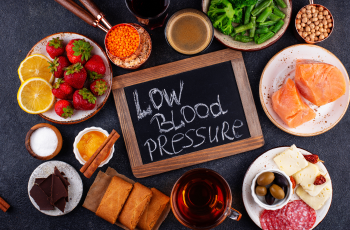Healthy Blood Pressure By Age: What Is Good Blood Pressure Based On Age?
Written by Dr Nelson Lau, MBBS FRACGP General Practitioner and Digital Health Specialist
Monitoring your blood pressure offers an insightful glimpse into the health of your cardiovascular system, the intricate network vital to your overall wellbeing. Understanding what constitutes an “ideal” blood pressure reading is crucial, as these standards vary significantly from infancy to the golden years. Keeping abreast of where your levels should ideally be, Healthy blood pressure by age, is a key component in maintaining a healthy heart.
We will dive deeper into the meaning of these blood pressure numbers, explore the recommended ranges for different age groups, and highlight lifestyle adjustments that can optimise your cardiovascular health and healthy blood pressure.
Blood Pressure Basics
The common blood pressure measurement, such as “120 over 80,” represents two distinct figures: systolic and diastolic blood pressure.
- Systolic Pressure: This is the pressure exerted on the artery walls when your heart pumps blood out. It can be likened to the force with which water jets out of a hose.
- Diastolic Pressure: This refers to the pressure when the heart is at rest between beats, similar to the lower pressure when the water source is refilling.
Ideal Blood Pressure Ranges from Infancy to Old Age
Blood pressure norms evolve throughout life. Here are healthy blood pressure by age readings
- Newborns typically have a blood pressure around 100/60 mmHg.
- Toddlers may have readings around 105/65 mmHg.
- Tweens often average at 110/70 mmHg.
- Teenagers generally align with 120/80 mmHg.
This gradual increase continues until around age 20, when adult standards are generally applied:-
- Young Adults to middle-aged individuals should ideally maintain blood pressure around 120/80 mmHg. As we enter our senior years, slightly elevated readings become more acceptable:
- Seniors (65+) often have blood pressure in the range of 130/80 to 140/90 mmHg. However, these figures are merely guidelines. Your “ideal” blood pressure should consider your unique health profile.
Factors Influencing Blood Pressure:
Your blood pressure can be influenced by a variety of factors:
- Health Conditions: Conditions like diabetes, hormonal imbalances, or kidney disease can affect blood pressure.
- Medications: Some drugs, including NSAIDs, decongestants, birth control pills and corticosteroids, can impact BP readings.
- Genetics & Family History: Your hereditary background plays a role.
- Lifestyle Choices: Diet, exercise, sleep quality, and stress levels are crucial determinants.
- Habits: Smoking and alcohol consumption significantly influence blood pressure.
- White coat hypertension: This occurs when BP readings are higher in a medical setting due to anxiety or stress, but these elevated readings may not reflect one’s usual blood pressure levels in more relaxed environments.
Monitoring Your Blood Pressure:
Regular home monitoring can help you identify your ideal blood pressure range, tailored to your health circumstances. It’s recommended to:
- Choose a reliable monitor: Arm cuff monitors are often the most accurate.
- Maintain consistency: Record your readings at the same times each day under similar conditions.
- Keep a log: Note down dates, readings, and any recent changes in medication or lifestyle to identify patterns.
- Collaborate with healthcare providers: Share your logs with your doctor to customise your blood pressure targets and treatment plans. Avoid relying solely on generalised standards.
Strategies for Maintaining Optimal Blood Pressure:
If your readings consistently exceed your personal targets, consider the following lifestyle modifications:
- Dietary changes: Adopt a diet low in salt, processed foods, and saturated fats, such as the DASH diet.
- Regular exercise: Engage in at least 30 minutes of physical activity most days.
- Weight management: Shedding extra kilos can alleviate strain on your circulatory system.
- Stress management: Practices like meditation, massage, and yoga can be effective.
- Alcohol moderation: Limiting alcohol intake to one drink per day can be beneficial.
- Medication adherence: Follow your prescribed medication regimen diligently.
The Takeaway
Understanding and managing your blood pressure is a personalised journey. It’s essential to know the blood pressure goals appropriate for your age and health, informed by consistent home tracking and professional medical advice. This knowledge empowers you to make informed lifestyle choices and adhere to treatment plans tailored to maintain your cardiovascular system in its optimal state. By doing so, you play an active role in ensuring the longevity and health of your heart and overall well-being.

Related Articles
Healthy Blood Pressure By Age: What Is Good Blood Pressure Based On Age?
February 22, 2024Blood Pressure
Healthy blood pressure by age: What is good Blood Pressure based on age? Written by...
Disclaimer
This content is created for informational purposes only. It is not intended to be a substitute for professional medical advice. Always seek the guidance of your doctor or other qualified health professional with any questions you may have regarding your health or a medical condition. For emergencies please immediately contact 000.










 Facebook
Facebook Instagram
Instagram LinkedIn
LinkedIn


